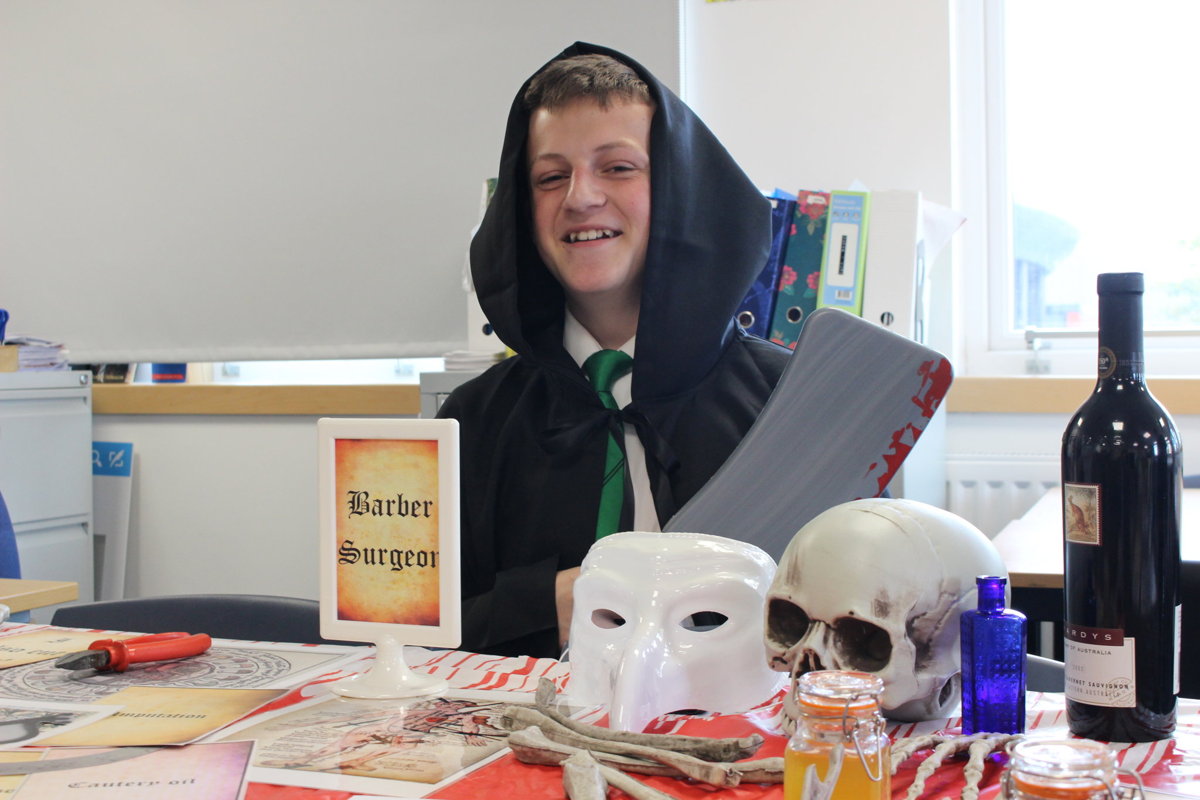
History is about people – real people whose lives were sometimes exciting and sometimes frightening. Whatever their lives were about, there's a fascinating, and sometimes tragic, story behind them. As well as being exciting, studying history helps you to develop skills which can be used across the subjects you study.
At Unity students study history in Phases 1 – 5 with the option to study at GCSE.
In Phase 1, 2 and 3 it is taught as part of the creative curriculum as half term topics. Phase 4 students study aspects of history from 1066 to the present including depth studies on the Norman Conquest, Tudors and Stuarts, the slave trade, the Industrial Revolution and the wars of the Twentieth century. In Year 9, 10 and 11 it is taught as a separate subject for 2 hours per week. Students then have the option to study at GCSE
This subject as a GCSE Option
Subject - History
Qualification - GCSE History
Hours per week – 2/3 Hours.
Through history lessons students are taught the skills to question the world we see today, to form arguments with supporting evidence and develop a love of discovering our past. A wide variety of teaching and learning activities are used to engage the students in their studies. We have a new twitter account this year which we will be using to showcase the students work and provide useful information and links. This is found @unityhistory.
Why do this course?
History is about people – real people whose lives were sometimes exciting and sometimes frightening. Whatever their lives were about, there's a fascinating, and sometimes tragic, story behind them. As well as being exciting, this course will help you to develop skills which will be useful in a wide range of jobs or in the further study of History.
GCSE history will give you the opportunity to study photographs, films, videos, online sites, newspapers and original written sources. You will be involved in discussions role-play, use ICT to produce your own resources.
You must be prepared to get involved, to read and investigate outside of the classroom.
Historians develop skills of enquiry, debate and presentation and go into jobs such as journalism, business, law, politics, tourism or the media. Do you have the power to solve problems, not just identify them!
What will I study?
AQA History 8145 - Subject content
The GCSE History content comprises the following elements:
• one period study
• one thematic study
• one wider world depth study
• one British depth study including the historic environment.
Paper 1: Understanding the modern world
Section A: Period studies
• 1B Germany, 1890–1945: Democracy and dictatorship
Section B: Wider world depth studies
• Conflict and tension, 1918–1939
Paper 2: Shaping the nation
Section A: Thematic studies
• 2A Britain: Health and the people: c1000 to the present day
Section B: British depth studies including the historic environment
• Elizabethan England, c1568–1603
Assessments
Paper 1: Understanding the modern world
What's assessed?
In Section A there is a choice of four period studies, each with a focus on two key developments in a country's history over at least a 50 year period.
In Section B there is a choice of five wider world depth studies. These focus on international conflict and tension.
How it's assessed
- Written exam: 1 hour 45 minutes
- 84 marks (including 4 marks for spelling, punctuation and grammar
- 50% of GCSE
Questions
- Section A – six compulsory questions (40 marks)
- Section B – four compulsory questions (40 marks)
- Plus 4 marks for spelling, punctuation and grammar
.png)



